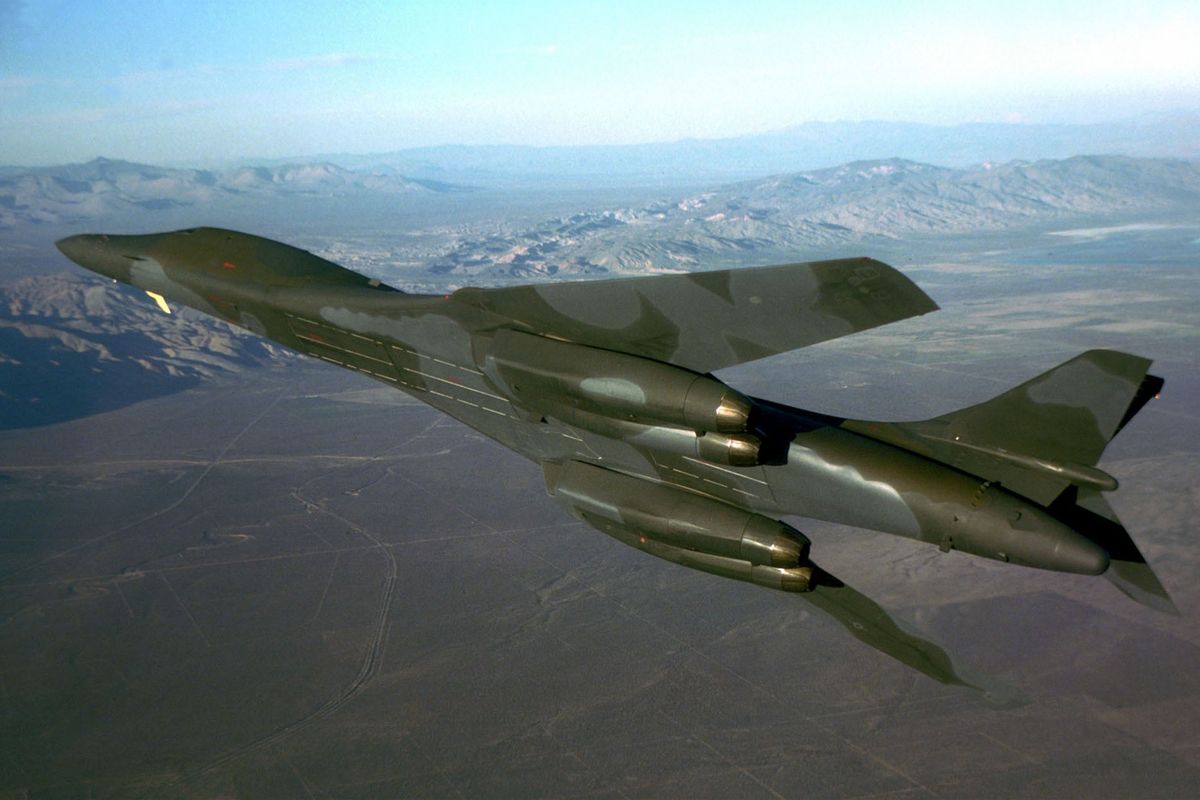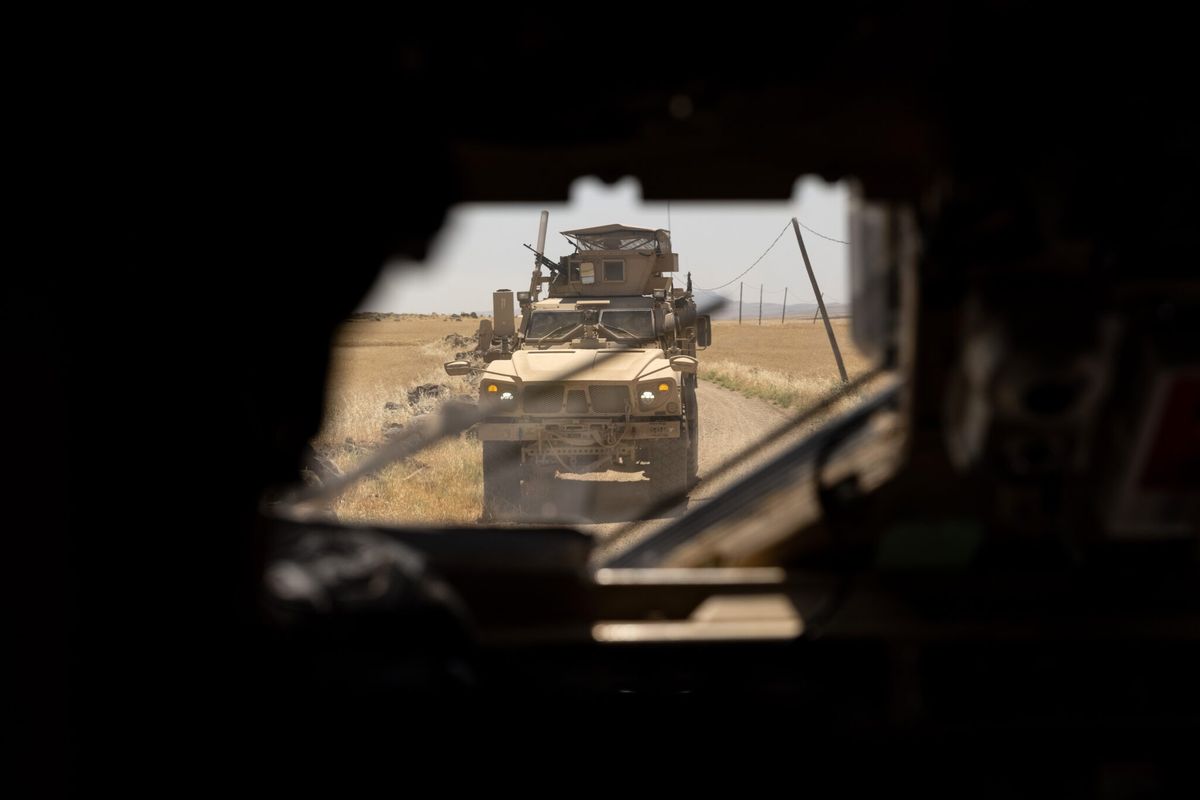Supported by coalition weapons, airstrikes, military advisers, and now several hundred U.S. Marines, the predominantly Kurdish Syrian Democratic Forces (SDF) have advanced to within 50 kilometers of ISIS’capital in Raqqa. However, challenges, both tactical and political, remain ahead. The Cipher Brief’s Fritz Lodge spoke with Brian Michael Jenkins, Senior Adviser to the President of the RAND Corporation, to look at the Trump administrations options, and the challenges it faces in finally capturing ISIS’ Syrian stronghold.
The Cipher Brief: Where do you see the campaign against ISIS in Raqqa right now? What do we need to be thinking about?
Brian Michael Jenkins: What has really held the recovery of territory seized by ISIS back is not simply a matter of the military contest. This could turn out to be tough because fighting in urban areas is costly, difficult, and slow. But that isn’t simply it in this kind of contest. It’s looking ahead to the day after the battle. Asking what is it that you’re going to do? Who’s going to take control? Will they have the ability to restore authority? That’s the challenge.
This is particularly the case in Raqqa. Sorting out whether it will be the Kurds, joined by Arab contingents in the Syrian Democratic Forces (SDF) and backed by the Americans, who are going to enter the city, for instance. In terms of military capability, they are probably most effective and geographically best-positioned to do it, but because we’re talking about a Sunni Muslim territory, this is not a place that the Kurds will be able to or want to rule. This is beyond the border of their ethnic enclave. So they seem to be pulling along a smaller Arab contingent on this, and it’s questionable whether that contingent would be able to maintain its authority throughout the city if the Kurds and Americans are not there.
It is also an issue that the Turks object strongly to the Kurdish elements of the SDF leading and winning the assault on Raqqa. The Kurdish organizations involved [the Democratic Union Party (PYD) and their military arm, the People’s Protection Unit (YPG)] are viewed by the Turks as terrorists, so this complicates the SDF-led option.
TCB: What different options does the Trump administration have as it looks to organize the final assault on Raqqa?
BMJ: We could put American boots on the ground and do this ourselves, but there would be heavy casualties, and introducing American combat forces would change the dynamics of the contest. Beyond that, very few people accept the idea that the fall of Raqqa will end the fight. The presumption is that ISIS, its leadership, and its surviving fighters will go underground and continue to fight in the form of an insurgency. So we would be putting Americans in the position of trying to occupy and hold an Arab city under threat of an ongoing insurgency and terrorist campaign. That is not an attractive concept, so there’s great reluctance to this idea.
That’s one very unattractive possibility, U.S. troops on the ground. Another is to provide more U.S. military support to the SDF and the Kurds to go in themselves – some of which already appears to be happening. But there are problems with controlling Raqqa after the battle here, and Turkish resistance to any SDF-led assault.
The Turks have often talked about leading the assault themselves with their allied “Euphrates Shield” Syrian rebels. But they are a good 100-120 miles away from Raqqa. The Turkish-backed Euphrates Shield rebels have also not proven themselves to be terribly effective fighters, so this doesn’t seem to be a realistic option at the moment.
The last option would be some combination of Iranian militias, Syrian government forces, and Russian air power. But again, the Syrian government is very far away from Raqqa. The Euphrates valley is also Sunni territory, so then the question becomes, could the Syrian government use air power in the way that they did in Aleppo and level the city? Yes, they could do that with massive civilian casualties, but you would have Shi’a troops imposing their will with Russian backing over a Sunni city and a Sunni Euphrates valley area. So this is not a terribly realistic option either.
So we have this situation where you are looking at an array of fairly weak forces to take on a difficult military mission. Of these, the Kurds and Arab contingents of the SDF are the strongest, but they will still run into troubles the farther they stray from their home territory.
TCB: Inside the city, how has ISIS prepared its defenses and do you think we will see the kind of resistance we’ve seen in Mosul?
BMJ: Yes, the first thing is to look at what we’ve seen in Mosul, and there ISIS has dug in and fought hard. If they fight to the last man, this could become extremely costly.
The other important dimension here is the foreign fighters. The local fighters ultimately have the option of going underground and some may well survive. They’ve done this before, they know how to do this, so that’s an option. For a lot of the foreign fighters, however, going underground is not an option. They’re not Syrians, and they will not survive. So either they will try to scatter and make it to other Jihadist formations and fronts, or this is it. This is the end times. They’re looking toward the afterlife. And that kind of mindset suggests that this will be a very long, tough contest.
Another factor in this is that the civilian population and the fighters may not be as divided as we’d like to think. When you think about this, are we going to treat this as an enemy state or occupied territory? Our preferred view is that ISIS came in and captured these cities and imposed very harsh rule, and the people can’t wait to be rid of them. But that may only be partially true. Among the civilians, there are those who not only collaborated, but who are a part of this. As civilians, they will still be there, even if outsiders come and recapture the city. The other people in Raqqa know they will still be there and therefore will be reluctant to turn on them or give up the fight or do anything that will expose them to retaliation or vengeance in the future. Because they know that whoever comes in to occupy the city is not going to have that kind of absolute control over what goes on. So fears about betraying ISIS, even if you’re persuaded that they will lose, provide a powerful impediment to betraying them.













